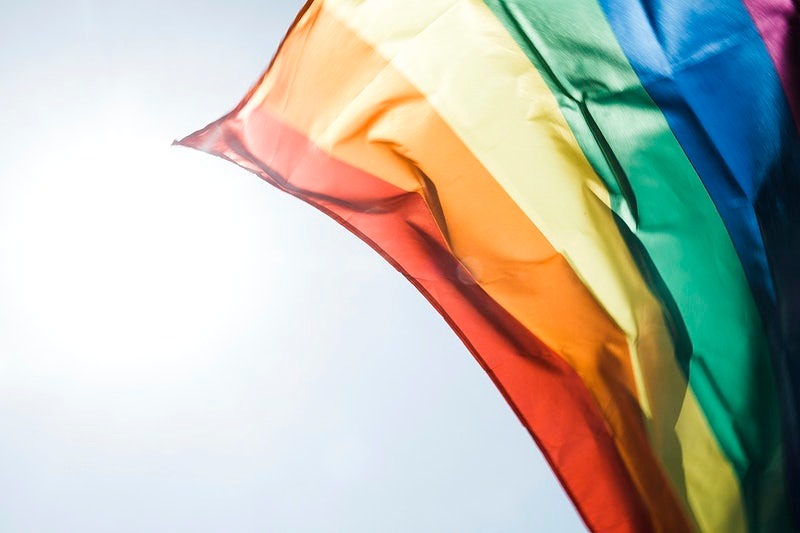Throughout the last few decades, society has come to understand more about specific struggles experienced by the masses. Within the medical and mental health field alone, it took a while before addiction, depression, and several other mental illnesses were recognized as serious. It has taken time for people who are struggling with addiction to be accepted, but we still aren’t entirely there.
We now have a better understanding of the importance of seeing each person for who we are, not our addiction, and the importance of making individuals feel included. While society’s acceptance has been a significant leap, it is also crucial that treatment for addiction be inclusive of all people.
Dream Recovery believes in providing inclusive treatment to all, including individuals in the LGBTQIA+ community. If you or someone you love identifies with the LGBTQIA+ community and is suffering from addiction, the time to seek help is now. Do not be afraid to reach out to Dream Recovery out of fear of being discriminated against. Start your path to recovery today with our dream team.
Why Is Inclusivity Important?
Unfortunately, it’s not uncommon for people to still experience discrimination based on race, gender, sexual orientation, or gender identity. The world has made progress regarding inclusivity, but there is still much work to be done. When it comes to mental health or healthcare in general, services, treatments, and levels of care mustn’t be influenced by discrimination. Having equal access to care is essential when it comes to addiction treatment.
The thing about addiction is that it does not discriminate; addiction is an equal opportunity illness, and everyone should have equal access to receiving treatment for it. Especially in communities where addiction or substance use disorders (SUDs) may be more prevalent, the people of those communities should have as much access to treatment as anyone else.
According to the National Institute on Drug Abuse’s (NIDA) publication on substance abuse and SUDs in LGBTQIA+ communities, LGBTQIA+ individuals sometimes suffer from more severe SUDs when entering treatment. Treatment professionals need to understand why that is and how treatment can be reformed to be more inclusive.
Dangers of Noninclusive Treatment
Individuals who identify as a part of the LGBTQIA+ community face a level of social discrimination that others do not. This increased level of discrimination or stigma leads to the development of more emotional, psychological, or behavioral health issues. Unfortunately, these stigmas may also prevent individuals of this community from seeking the necessary treatment to handle addiction or mental illness.
Due to the fear of facing discrimination, people may avoid treatment altogether, causing their addiction to progress dangerously or lead to an overdose or death. Deciding to enter into treatment is the first step towards a life of recovery, but the fear of discrimination can make it impossible.
Another danger of noninclusive addiction treatment programs is that they can make individuals from the LGBTQIA+ community feel like outsiders amongst their peers. While people suffering from addiction can generally understand and relate to each other well, the bond can be even stronger when they can relate and identify with others more individually. The less inclusive a treatment program is, the lesser the chance of other members of the LGBTQIA+ community entering the program, which means fewer people that understand them beyond their addiction.
Noninclusivity can make it difficult for programs and clinical professionals to help individuals reach the full potential of their recovery due to a lack of insight, knowledge, or resources. It is critical to not only treat the disorder, but also treat the person. This approach encourages them to live freely as they are.
How to Can Change Noninclusive Treatment Today
How treatment centers improve noninclusive programs varies, but the most effective way is through education. By simply educating clinical professionals about addiction, mental health, or substance abuse within the LGBTQIA+, they can learn more about the resources they can offer and how to treat individuals within the community more effectively. Educating each other is the first step to implementing changes into relapse prevention programs, therapy sessions, and promoting a more holistic approach to treating the person who enters a facility rather than the addiction.
Additionally, it’s important to show potential clients inclusive programs in a way that puts them at ease about seeking treatment. This can be through testimonials of past clients and including more curriculums and programs revolving around LGBTQIA+ topics. Ultimately, one of the most significant ways we can make these changes is to show compassion, especially regarding sensitive situations like addiction. Kindness is key.
By creating addiction programs that are not inclusive of people from all communities, much damage can be done to people suffering from addiction. When it comes to addiction treatment and healthcare in general, clients should receive the utmost level of care regardless of sexual orientation or gender identity. That requires treatment programs to be inclusive of the LGBTQIA+ community. Noninclusivity leads individuals to avoid seeking treatment out of fear of discrimination leading to increased suffering and even death. By simply educating oneself more on the struggles those within the community face and how it affects their addiction, facilities can provide a more effective treatment for clients and resources on living a life of recovery after treatment. Dream Recovery understands the importance of inclusive treatment and wants all those within the LGBTQIA+ community to feel safe and welcome. Call us today at (949) 732-1960 to learn more about how we can tailor treatment to your specific needs.


Recent Comments